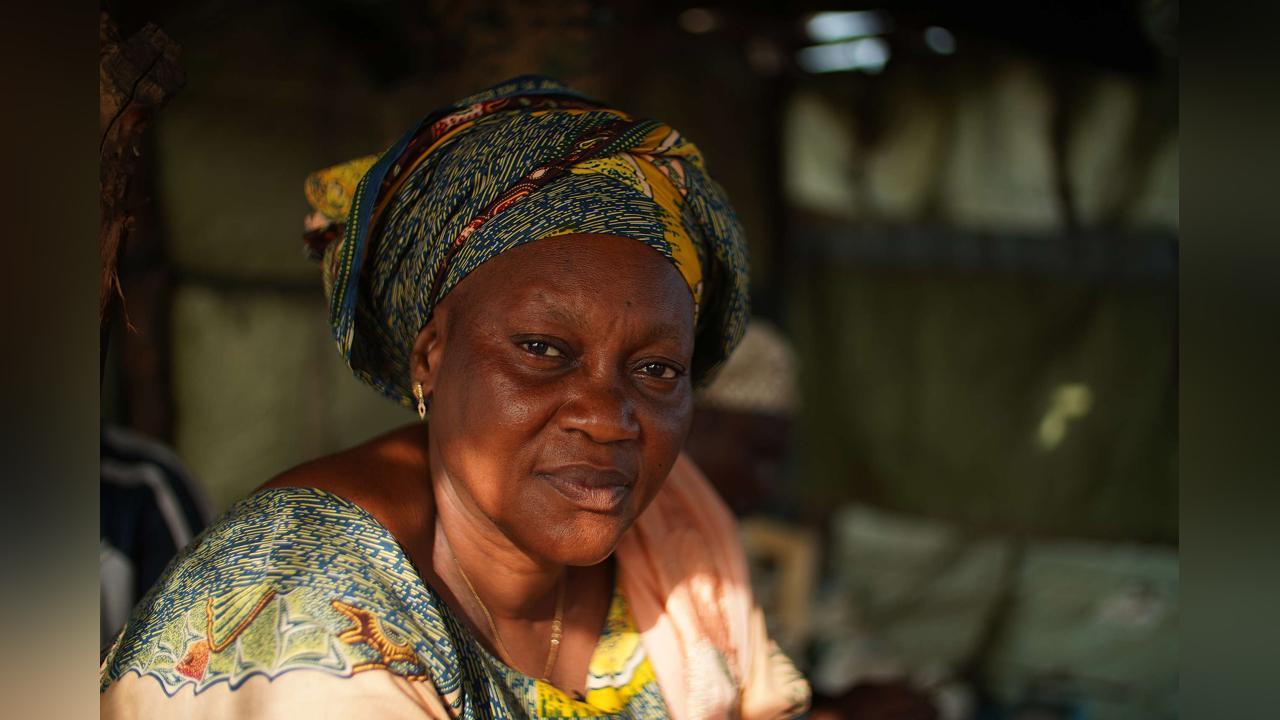Africa-Press – Eswatini. “It is better to go your separate ways than to harm each other,” according to Colani Hlatjwako, the Africa Regional Coordinator for the One Billion Rising Campaign.
Hlatjwako applauded the firm decisions couples have been making recently, but expressed concern about the challenges accompanying such settlements, especially in marriages with children. She said it is better to walk out of marriage alive.
There has been an increase in gender-based violence in the country as many women, in particular, have been killed by their husbands and boyfriends. At some point, one man is facing four murder charges after killing four women at once. Recently, school going children have also been killed.
As a result, it was reported in February 2024 that a programme styled Hlonipheka was launched to address issues of gender based violence. It was also mentioned that about 400 survivors of gender-based violence in Eswatini, along with approximately 1 500 persons with disabilities, are set to benefit from the Hlonipheka – Thriving for Dignity programme, valued at nearly E11 million.
The partnership between the European Union and the United Nations Population Fund (UNFPA), aims to address the pressing issue of GBV and empower vulnerable communities in Eswatini, including persons with disabilities. Hlonipheka, meaning dignity in Siswati, was officially launched by the Deputy Prime Minister, Senator Thuli Dladla, represented by Principal Secretary of the Deputy Prime Minister’s Office, Melusi Masuku, at the UN House in Mbabane on February 21, 2024. Highlighting the urgency of the project, the DPM emphasised its timeliness in light of the recent surge in cases of gender-based violence across the country.
Over the course of three years, the project will implement various interventions, including the empowerment of 200 caregivers and family members of children with disabilities, as well as training of 80 service providers and counsellors in safe spaces. Additionally, 700 policymakers, including members of Parliament, Tindvuna Tetinkhundla, service providers (healthcare workers, teachers, and community members), will undergo training and sensitisation on their roles in supporting the programme’s objectives.
The overarching goal of Hlonipheka is to foster safe communities that actively promote social justice and protect the rights of women, girls, and persons with disabilities. It is anticipated that the programme will lead to significant improvements in the human rights and overall well-being of survivors of GBV and persons with disabilities in Eswatini.
Recent data underscores the critical need for initiatives like Hlonipheka, with statistics revealing that one in four females and nearly one in three males aged 13-24 years in Eswatini have experienced some form of violence. Moreover, between 2020 and 2022, the country witnessed a troubling 22 per cent increase in GBV cases.
Former EU Ambassador to Eswatini Dessislava Choumelova echoed His Majesty King Mswati III’s call for increased resources to combat GBV, emphasising the EU’s commitment to investing in human capital and social cohesion. The EU’s contribution of E10 260 000 towards the project demonstrates its dedication to supporting initiatives that address pressing social issues.
Lydia Zigomo, UNFPA Regional Director for East and Southern Africa, highlighted the widespread prevalence of violence against women and girls globally, emphasising the need for collective action to combat this human rights abuse. In Eswatini, data reveals significant disparities in decision-making power, with 51 per cent of women lacking autonomy in crucial areas such as sexual consent, contraception use, and healthcare decision-making.
George Wachira, UN Resident Coordinator, stressed the importance of collaboration among stakeholders to achieve the project’s objectives effectively. He expressed gratitude to the DPM for her strong leadership on GBV in line with the directives of His Majesty the King, and thanked civil society, the media, the private sector and international partners for speaking up strongly on the issue.
The Hlonipheka – Thriving for Dignity project represents a significant step forward in addressing gender-based violence and promoting the rights of vulnerable communities in Eswatini. Through collaboration and concerted efforts, it is poised to make a meaningful impact on the lives of survivors and persons with disabilities, fostering a more equitable and just society for all.
Meanwhile, Hlatjwako said in an interview with Eswatini News: “in families where there is violence, the children are the most affected. Where there is abuse, there is no love.”
She added: “we observe that couples no longer understand the foundation of marriage, which fundamentally relies on respect, communication, and tolerance.” One Billion Rising is a global campaign aimed at ending violence against women and girls. Hlatjwako is currently coordinating the campaign across 17 countries: Eswatini, South Africa, Mozambique, Zambia, Lesotho, Kenya, Uganda, Nigeria, Togo, Mali, Senegal, Ghana, Malawi, Gabon, Cameroon, Rwanda, and Namibia. She also sits on the Global Council of the One Billion Rising Campaign.
Hlatjwako further noted that couples must understand that many things change as they grow.”Another issue is that we come from broken backgrounds and enter marriages with unrealistic expectations. A significant contributing factor to divorces is poverty,” she added. Hlatjwako is an accredited member of the Network of African Women in Conflict Prevention and Mediation (FemWise–Africa) within the African Union. She is also a founding member of Liphimbo Labomake Eswatini, a women’s coalition.
FINANCIAL PRESSURES DRIVE DIVORCE SURGE – Court president
MBABANE – Financial difficulties and related expectations have been identified as the main cause of the alarmingly high divorce rate in the country.
It was reported early in the week that 270 marriages ended within a span of six months, from April to September 2024.This was highlighted by the Ministry of Home Affairs in its second-quarter report, presented in Parliament earlier this week. According to the report, 167 ended in divorce, while 103 were nullified. A marriage is nullified if its foundation was initially flawed for several reasons, such as bigamy and adultery, among others. The ministry noted that in the first quarter, 74 divorce proceedings were concluded, and 63 were nullified. In the second quarter, there were 93 divorces and 40 nullifications.
Traditionalist and Mbabane National Court President Thulani ‘Two Men’ Shongwe expressed his concern that people marry for material reasons, underscored by what today’s youth refer to as liyadleka lelijaha (financially draining someone). “Many of these financial gestures that men showcase during courtship are not genuine, and women only realise this after marriage. Post-marriage, the man is likely to be in debt. Couples meet at parties or entertainment events, expecting such outings every weekend,” said the court president in an interview.
He continued to note that men are also culpable for the rising divorce rates, as they often prioritise appearances over a woman’s character when contemplating marriage. He emphasised that the primary factor remains financial issues, which can lead to adultery, mistrust, and lack of communication.”Another issue is that parents no longer spend time with their children,” he said.
Shongwe pointed to the fact that many children are sent to boarding schools, and even when living under the same roof, both parents are working. In the past, he said girls would spend time with their mothers in the kitchen, while boys would gather with their fathers, uncles, and grandparents.“This was where life lessons were shared and knowledge was imparted,” emphasised.
Reverend Sandile Sibandze of Gwamile Apostolic World Faith Church echoed Shongwe’s sentiments, noting that many marry for financial reasons. “When the money dries up, the marriage ends,” the man of the cloth said. He said there was a serious lack of counselling for couples and respect for marriage. He added: “this is concerning, as couples often enter marriage without understanding its obligations, ultimately breaking vows that pledge commitment for better or worse.”
Reverend Sibandze further mentioned that nowadays, people marry strangers after dating for just two weeks. During its report in Parliament, the ministry stated that divorce and nullification of marriage are legal processes managed by the High Court and Magistrates’ courts in Eswatini. Once a marriage is legally dissolved through divorce or deemed void by nullification, individuals may need to apply for the removal of their marriage certificate from the Civil Registration Department. “This ens
For More News And Analysis About Eswatini Follow Africa-Press







